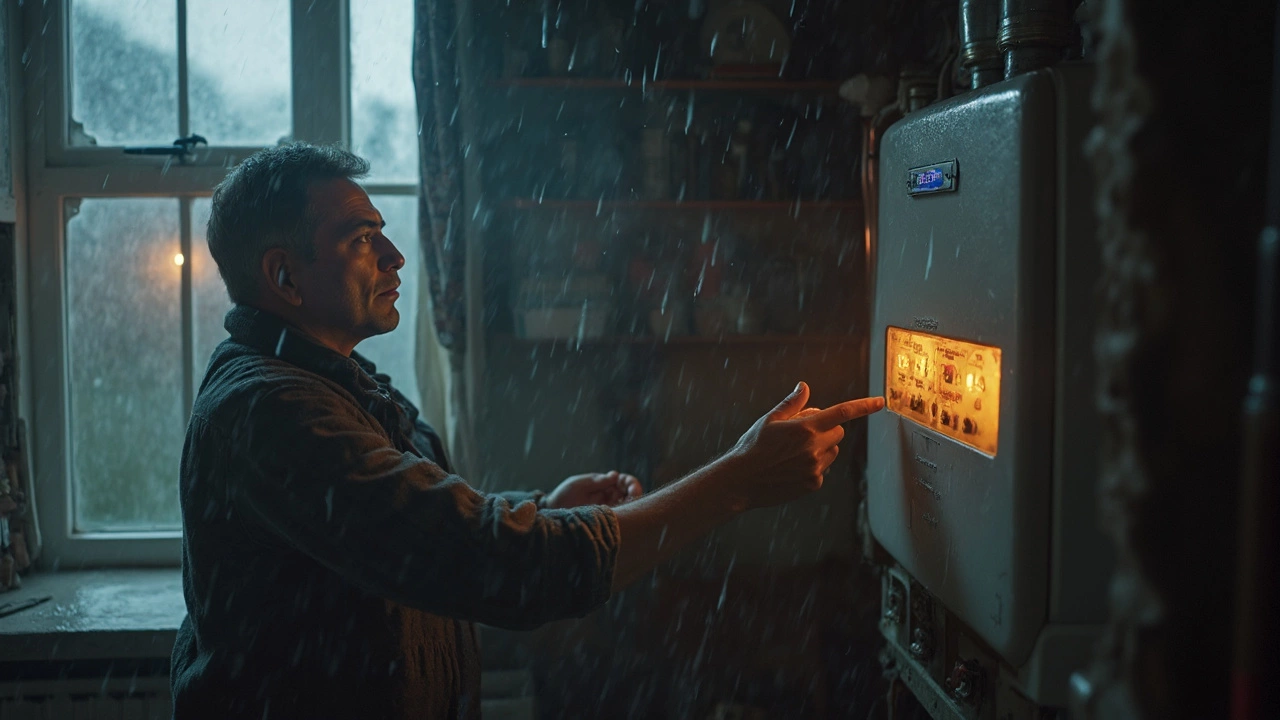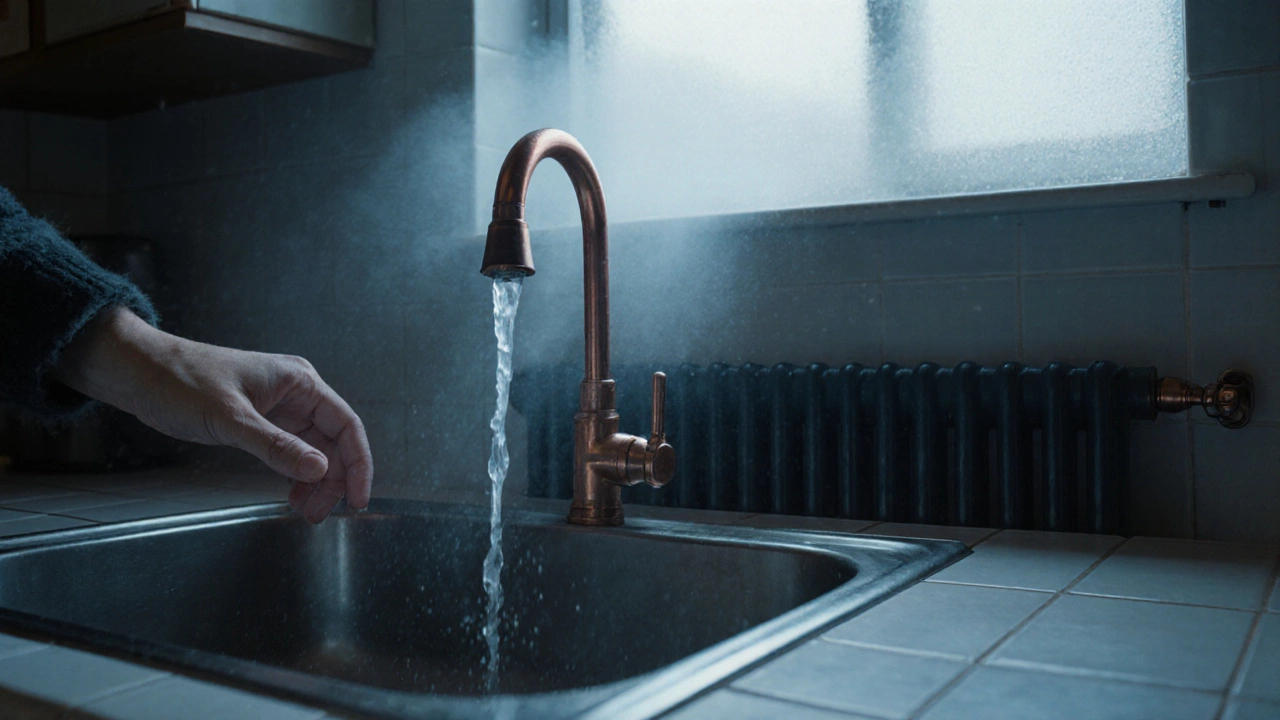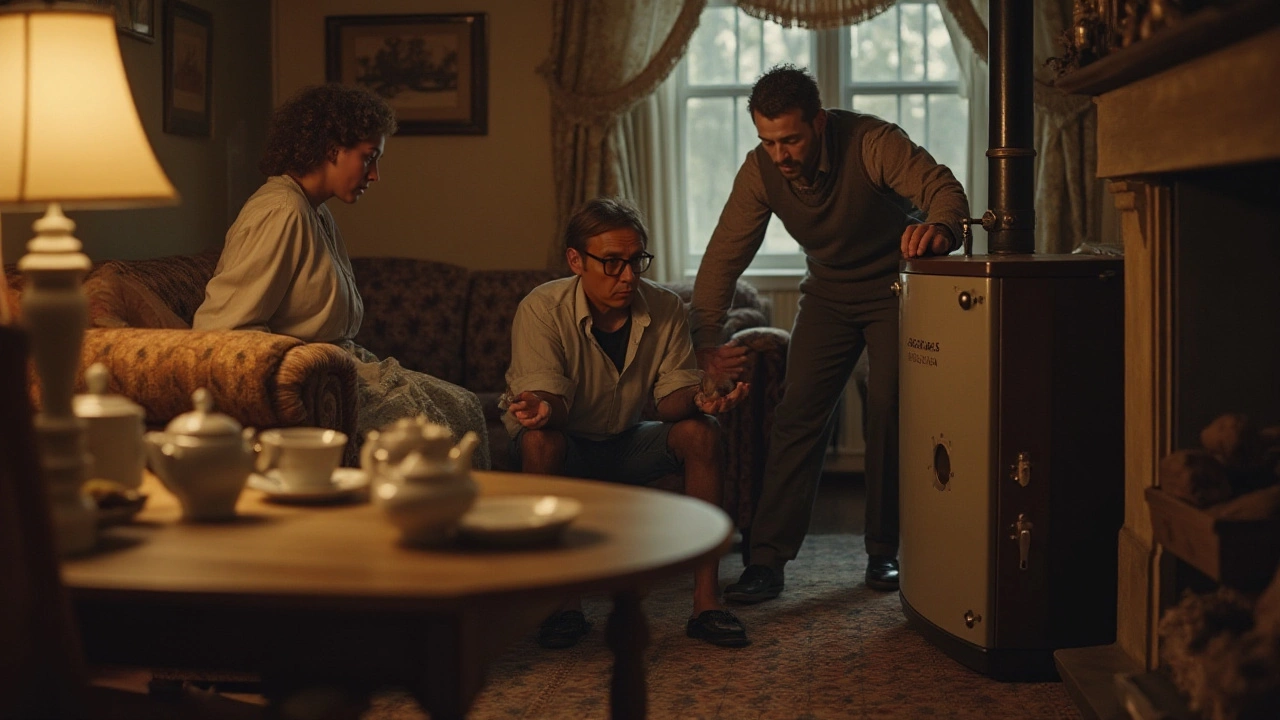
- 3 May 2025
- Gideon Thornton
- 0
Ever wondered what could actually go wrong if you just skip servicing your boiler? It’s easy to think you’ll save time and cash, but here’s the kicker: skipping that yearly check-up could set you up for much bigger headaches later.
Boilers work hard all winter, and the smallest missed issue can snowball. A bit of buildup or a stuck valve might not sound serious, but it’s how you end up with weak heating, weird noises, or repairs that cost several times more than a simple service. Some folks leave it for years, only to find themselves without hot water during the coldest week of the year.
It’s not just about money, either. A neglected boiler can leak carbon monoxide, which you can’t see or smell. It’s sneaky and dangerous—enough cases pop up every year. If there’s one thing you don’t want to gamble on, it’s your family’s safety.
- Why Servicing Matters
- What Goes Wrong Without Service
- Hidden Dangers and Costs
- Simple Tips to Avoid Boiler Trouble
Why Servicing Matters
A regular boiler servicing visit is like an annual MOT for your heating. Boilers aren’t just set-and-forget machines—they lose efficiency, pick up dirt, and develop small faults over time. When you get your boiler checked every year, the engineer spots problems early, sometimes before you even notice them. That means your heating stays reliable, and you’re not left shivering when winter hits hard.
Manufacturers often require proof of regular service to keep the warranty valid. Skip a year, and you might be stuck paying full price if anything goes wrong. But more than just protecting the warranty, a proper service helps maintain energy efficiency. According to the Energy Saving Trust, a well-maintained boiler can run up to 10% more efficiently than a neglected one. Over time, that’s real money saved on bills.
- Boiler servicing helps catch early warning signs, like weak pressure or strange noises.
- It keeps your boiler safety features working, including detecting deadly carbon monoxide leaks.
- Regular checks lower the risk of sudden breakdowns, which always seem to happen at the worst possible moments.
The bottom line—servicing might feel like a chore, but it’s way better than spending thousands on emergency boiler repair or, worse, risking your health. You don’t just keep the heat on; you keep your home safe and your mind at ease.
What Goes Wrong Without Service
It might not look like much is happening inside your boiler, but when you skip your boiler servicing, things stack up fast. The most common headache? Dirt and gunk start building up inside, messing with how well your boiler runs. Suddenly, water takes forever to heat or your radiators stay lukewarm no matter how high you turn them up.
Parts inside your boiler don’t last forever. Without regular checks, stuff like seals, pipes, and pressure valves can wear out or break when you least expect it. That’s how leaks and pressure drops sneak up on you. Some folks only notice when their heating shuts off, or worse, when water starts puddling on the floor.
Every year in the UK, around 1 in 5 boiler breakdowns are directly linked to missed boiler maintenance. Repairs aren’t cheap either—a typical emergency boiler repair can set you back anywhere from £100 to over £400, depending on the damage. For many, a skipped service means a voided warranty, so you’re footing that bill solo.
- Limescale buildup on heat exchangers cuts efficiency, making your heating bills creep up.
- Pilot lights go out more often when filters and jets clog up with dust.
- Air gets trapped in your system, leading to noisy banging pipes or even total boiler failure.
If you have a gas boiler, dodging a service can hide gas leaks and carbon monoxide issues. These are way more than a mild inconvenience—they’re real safety hazards.
| Issue | Potential Outcome |
|---|---|
| Missed Service | System breakdown, higher bills |
| Clogged Parts | Weak heating, slow hot water |
| Skipped Gas Safety Check | Undetected leaks, carbon monoxide risk |
| Warranty Void | Costly out-of-pocket repairs |
So, missing out on regular servicing isn’t just about comfort; it ends up costing you more and adds some big risks nobody needs in their home. Keeping up with boiler servicing saves a lot of hassle down the road.

Hidden Dangers and Costs
People often think a boiler will just keep ticking until it’s obvious there’s a problem. Here’s the harsh truth: the hidden stuff is usually the worst. A boiler that doesn’t get its yearly boiler servicing might keep running for a bit, but it’s quietly stacking up trouble (and extra costs you won’t see coming).
The biggest risk? Carbon monoxide leaks. This gas is totally invisible and has no smell, but it can make you and your family sick—or worse. According to the NHS, hundreds get poisoned by faulty boilers every year in the UK alone. If you haven’t checked yours in years, you wouldn’t know until it’s too late. And no, opening a window isn’t a fix!
Next up: wasted fuel. When a boiler isn’t cleaned or checked, it burns fuel less efficiently, which means you’re simply wasting money every time you put the heating on. Most folks only notice when the bill goes up for no clear reason. In fact, poorly serviced boilers can eat up to 10-15% more gas for exactly the same warmth.
Breakdowns are another wallet-drainer. That annoying clunking or weird noise? It’s a warning. Unserviced boilers break down way more often, and emergency callouts cost way more than a basic boiler repair. Some repair bills jump into hundreds of pounds, while a service is usually less than a fancy dinner out.
Here’s a run-down of what you might face if you let a neglected boiler run too long:
- Safety risks: Carbon monoxide, leaks, even fires in rare cases
- Higher bills: Using more energy for the same heating
- Invalid warranty: Many boiler makers cancel your warranty if you skip check-ups
- Major breakdowns: Parts wear out or corrode, leading to full system failure
Here’s a quick look at the typical costs from boiler mishaps vs. basic servicing, just to put numbers on it:
| Problem | Average Cost (£) |
|---|---|
| Annual Boiler Service | 80–120 |
| Emergency Boiler Repair | 150–400 |
| Major Part Replacement | 200–600 |
| New Boiler Install | 2,000+ |
Ignoring boiler maintenance and safety isn’t just risky for your pocket, but can put your whole family in danger. A small cost each year really is better than a big bill or health scare down the road.
Simple Tips to Avoid Boiler Trouble
Keeping your boiler servicing and boiler maintenance up to date isn’t rocket science, but a few smart moves can save you from a world of hassle. Here’s what actually works if you want to dodge those surprise repair bills and make sure your heating doesn’t quit on you when you’re freezing.
- Book an annual boiler service. Don’t wait until there’s a problem—schedule a check each year, ideally before winter. That way a pro can spot leaks, weird noises, and early signs of wear before things turn nasty.
- Check your boiler pressure every couple of months. If it drops below 1 bar or goes above 2, you’re already asking for trouble. Most boilers have a pressure gauge on the front—it’s worth a quick peek, trust me.
- Keep the area around your boiler clear. Stuff stacked nearby—laundry, boxes, or cleaning supplies—can mean poor ventilation. Boilers need space to "breathe," so clear out anything within a half meter.
- Bleed your radiators if you notice cold spots or gurgling sounds. Air gets trapped inside, which makes your whole heating system less effective and forces your boiler to work harder.
- Install a carbon monoxide alarm near the boiler. You can grab one at any DIY store, and for about the price of a pizza, you get peace of mind. These alarms don’t mess around—if there’s a leak, you’ll know.
- Don’t ignore small symptoms: strange noises, low hot water pressure, or heaters that hardly warm up. These can signal bigger issues. A professional boiler repair early on usually costs less than waiting until things grind to a halt.
Here’s a useful stat: according to the Energy Saving Trust, a well-maintained boiler can save you up to £200 a year just by running more efficiently compared to a neglected one. Little checks add up fast when your monthly bills start to drop.
One last thing—if you’re not sure about something, call a Gas Safe registered engineer. DIY is fine for bleeding rads or checking pressure, but when it comes to gas work or repairs, don’t risk it. Your safety—and your house—are worth way more.




